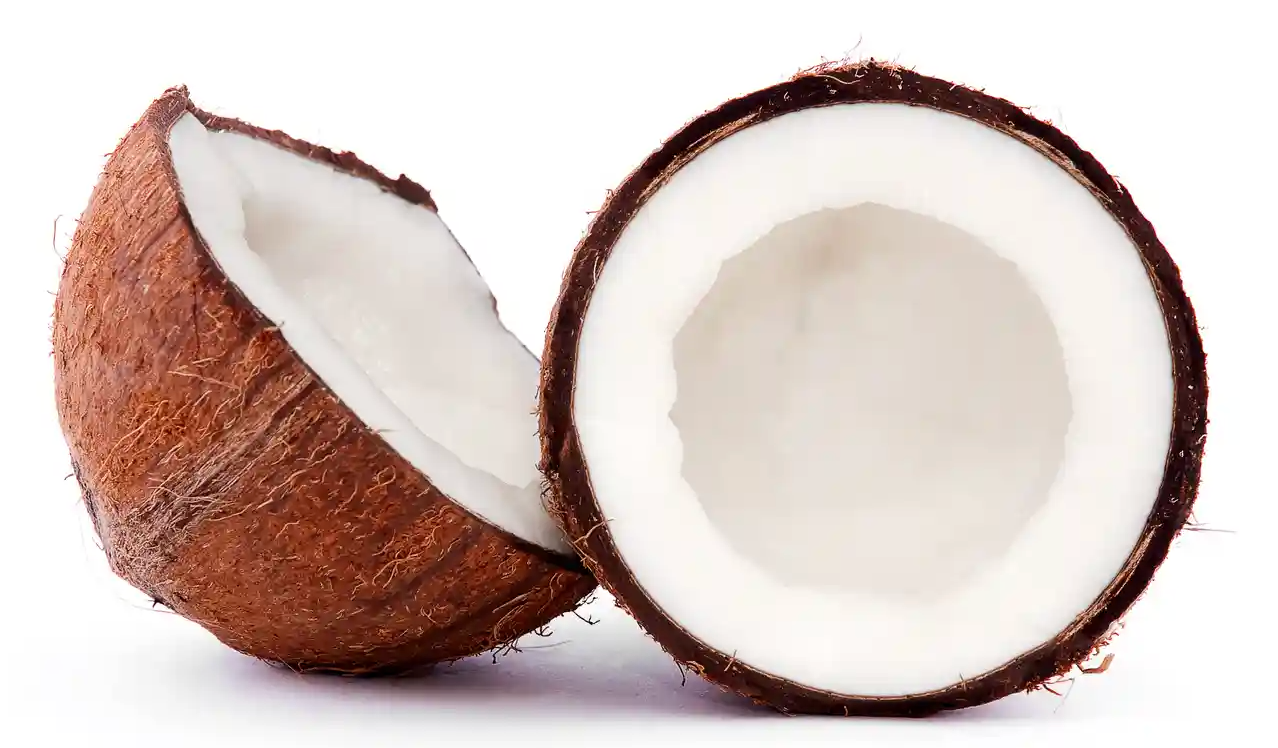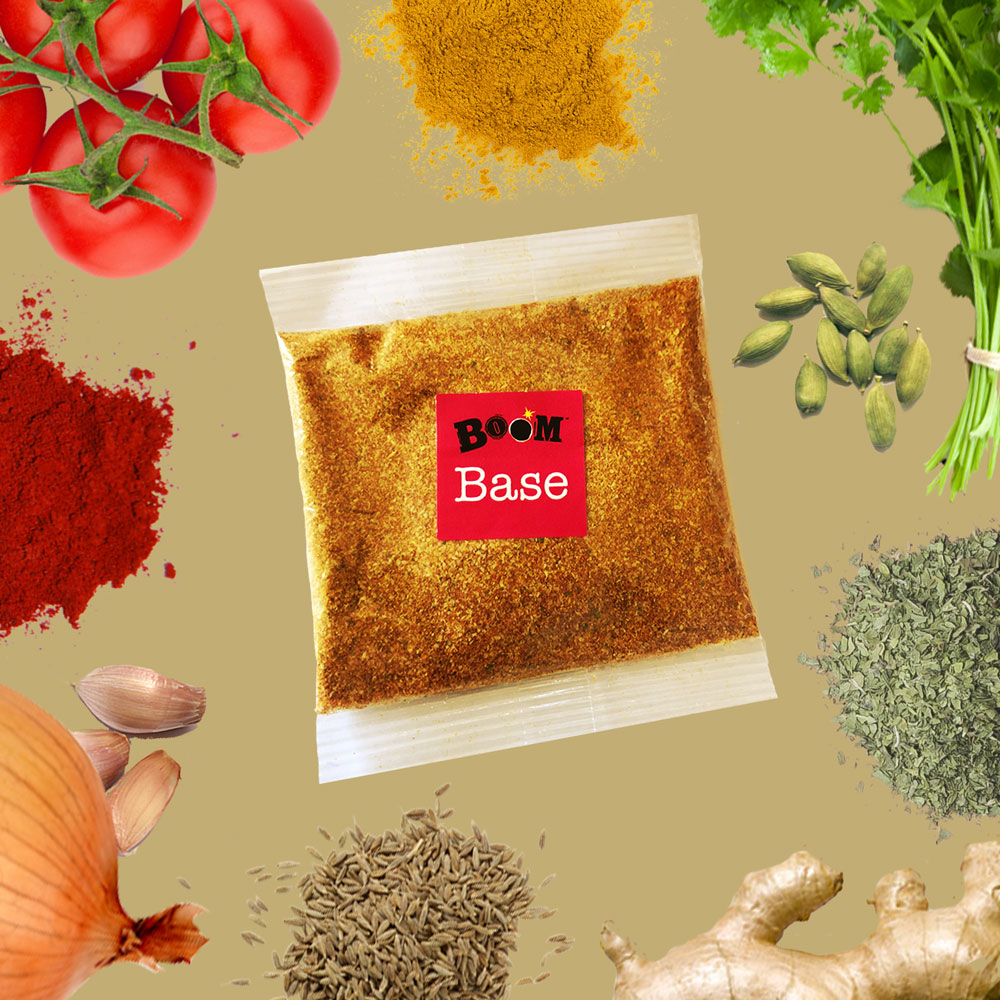Image credit: The Guardian via Osipovfoto/Getty Images/iStockphoto
Don’t rule out coconut for a healthy curry
In our search for a healthy curry we’re going to stick our neck out and say don’t rule out coconut. This may fly in the face of many slimmer's guides but hear us out!
Yes, coconut is calorie dense and has high levels of saturated fat that you need to be aware of. The British Heart Foundation advises people to reduce the amount of saturated fats they eat.
However, many people don't realise that you need both none saturated and saturated fats for a healthy diet. Coconut is a great source of saturated fat and is also really high in fibre and packed with essential minerals.
Syn values for various coconut products
| Ingredient | Measure 100ml/grams/spoon | Syns |
| Coconut Oil (good for curry cooking fat) | ||
| Coconut Oil | 1 tsp | 1.5 |
| Desiccated coconut | ||
| Un-sweetened desiccated coconut - (in some of Boom's Curry kits) | 15g per serving | 6 |
| Tinned coconut (good for curry) | ||
| Full fat tin of Coconut Milk | 400ml | 32 |
| Full fat tin of Coconut Milk | 1 tbsp | 1.5 |
| Low fat tin of Coconut Milk | 400ml | 14 |
| Coconut Cream (good for curry sauce) | ||
| Coconut Cream | 1 tbsp | 1.5 |
| Coconut creamed block | 25g | 8.5 |
| Coconut Yoghurt (needs testing in curry) | 1 dstspn (10ml) | 0.5 |
| Alpro Coconut Yoghurt Alternative | 500g | |
| Coconut Water (no good for curry) | ||
| Fresh Coconut Water | 240 ml (glass) | 1.5 |
| Alpro Coconut 1L | 240 ml (glass) | 3 |
|
Vita Coco The Original Coconut Water 1L |
240 ml (glass) |
2.5 |
Curry Kits Vs. Jars of Curry
Using a korma curry kit vs. a popular korma jar, as means of comparison, let's see how the ingredients you get measure up.
The main ingredient in Boom's Karma Korma is unsweetened desiccated coconut. With 30 grams per kit (15 grams per serving) you're getting a big hit of dietary fibre and essential minerals.
The main ingredient in a typical Korma Jar is cream and water. This probably explains why jars of curry sauce are so cheap. A benefit of using a kit over a jar is that you're in control of the sugar, salt and amount of cream you add. We don't want to come across anti jar, we're just pro cooking curries from scratch and cooking with fresh natural ingredients. Boom don't need to add preservatives because our kits contain dry ingredients. Dehydration is an ancient food preservation technology. As soon as you introduce wet ingredients you are providing a natural breeding ground for bacteria which is why so many wet sauces need to contain preservatives of some kind.
Coconut - a matter of fats
For a healthy diet you need all 3 kinds of fat.

Good fats - unsaturated
Unsaturated fats are considered good (coconut ~10%).
So called bad fats - saturated
Saturated fats (coconut ~90%) are essential for a healthy diet but cause cholesterol to rise if the diet and lifestyle is not balanced. There are different types of saturated fat cholesterol to be aware of.
Saturated fat types
|
Name |
MCTs |
LCTs |
|
|
|
|
|
Structure
|
These fat chains are like trains with 6-12 carriages (carbon atoms)
|
These fat chains are like trains with 13-21 carriages (carbon atoms)
|
| Examples | 🥥 coconut | 🧀 cheese and fat in meat 🥩 |
|
Pros
|
Are more easy to metabolise (turn into energy)
Can promote fat burning
|
Bone health, liver protection, hormone production, immune system support, cardiovascular function
|
| Cons | Too much saturated fat can promote unhealthy levels of cholesterol | Too much saturated fat can promote unhealthy levels of cholesterol |
Cholesterol
Cholesterol is divided into good and bad categories.
|
Good cholesterol |
So called bad cholesterol |
HDL (high-density lipoprotein)
|
LDL (low-density lipoprotein)
|
Dr. Mark Hyman explains cholesterol is not black and white. Classifying it as good or bad vastly oversimplifies the molecule.
When saturated fat does raise your cholesterol, the type of cholesterol becomes more important than cholesterol itself.
Abnormal cholesterol can become a problem when it is the small dense LDL particles, accompanied by long-train triglycerides (long trains). Small LDL particles triple your risk of heart disease. This is caused by high-carb, low-fat diets and is improved when you add fat back to the diet, including saturated fat.
Studies show saturated fat raises LDL (your so-called “bad” cholesterol) but it improves the quality of the LDL and increases its size making it less likely to promote heart disease. It also raises HDL (“good” cholesterol). Ultimately, the ratio of total to LDL cholesterol and particle number and size are a far bigger predictor of heart attacks than LDL itself."
Coconut is high in fibre - really high

Amazing fibre trivia: There is three times more fibre in desiccated coconut than prunes. That means Boom’s Korma, Tikka, Sri Lankan and Rendang curries have as much fibre as a bowl of prunes.
The 30g of coconut in Boom’s coconutty kits contains the same amount of fibre as a 100g of prunes (what’s 3.33g between friends). Our coconut is packed in sachets without Sulphur Dioxide (a preservative agent).
Desiccated coconut is 21% fibre - that’s 6.3g of pure dietary fibre in your curry.
Prunes are 7% fibre. What’s scary is that eating a bowl of prunes and a portion of our curry is only going to give you ~10g of dietary fibre when you should aim for 3 times that:
- Women under 50: 25 to 28 grams per day
- Men under 50: 31 to 34 grams per day
- Women 51 and older: 22 grams per day
- Men 51 and older: 28 grams per day
All we can suggest is you eat the cardboard your boom kits are delivered in for lunch.
There is strong evidence that eating plenty of fibre is associated with a lower risk of heart disease, stroke, type 2 diabetes and bowel cancer.
Coconut is packed with minerals
Coconut is a superfood packed with minerals - 100g provides an adult with the following recommended daily intake of these essential minerals for health:
90% manganese
Not to be confused with magnesium. Manganese is good stuff and is required for the normal functioning of your brain and nervous system. To use a cricketing analogy it’s a bit of an all rounder as it also helps out with your metabolism (turning food into energy), building bones and keeping the immune and reproductive systems running smoothly.
55% copper
Helps with metabolism and make red blood cells. As you’d expect, it keeps the WiFi between your nerve cells and your immune system healthy. It also helps form collagen which is essential for bones, connective tissue and your instagram pout.
22% selenium
Helps to make DNA and protect against cell damage and infections - loves hanging about in your thyroid.
23% phosphorous
Calciums wingman and essential for bone formation and health. Provides part of the scaffolding for nucleic acids (the NA of DNA) and cell membranes. Deficiency can cause muscle weakness, fatigue and a low tolerance for exercise.
26% iron
You need it to make haemoglobin - the stuff that carries oxygen in your blood.
9% zinc
It’s the trump card in enzyme rummy - helping 100 enzymes to do their thang - chemical reactions, creation of cells, DNA, building proteins, healing and your immune system.
33% potassium.
The ying to sodium’s salty yang. Potassium maintains water levels inside cells, sodium outside. Our bodies need far more potassium than sodium each day but the typical diet provides the opposite. High salt intake increases blood pressure, which can lead to heart disease. High potassium intake can help kick out excess sodium, this relaxes blood vessels and can decrease blood pressure. Potassium helps start and stop muscle contractions. Low blood potassium levels can mess with the balance and cause prolonged contractions known as cramps. That’s why tennis players eat bananas. One cup of coconut water contains about 600 mg of potassium, while a banana contains 420 mg.





